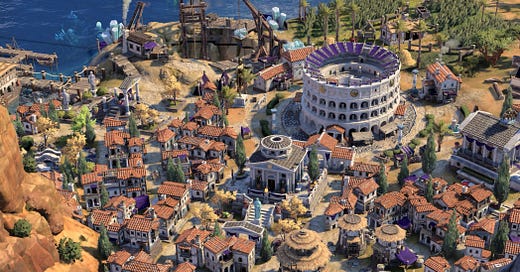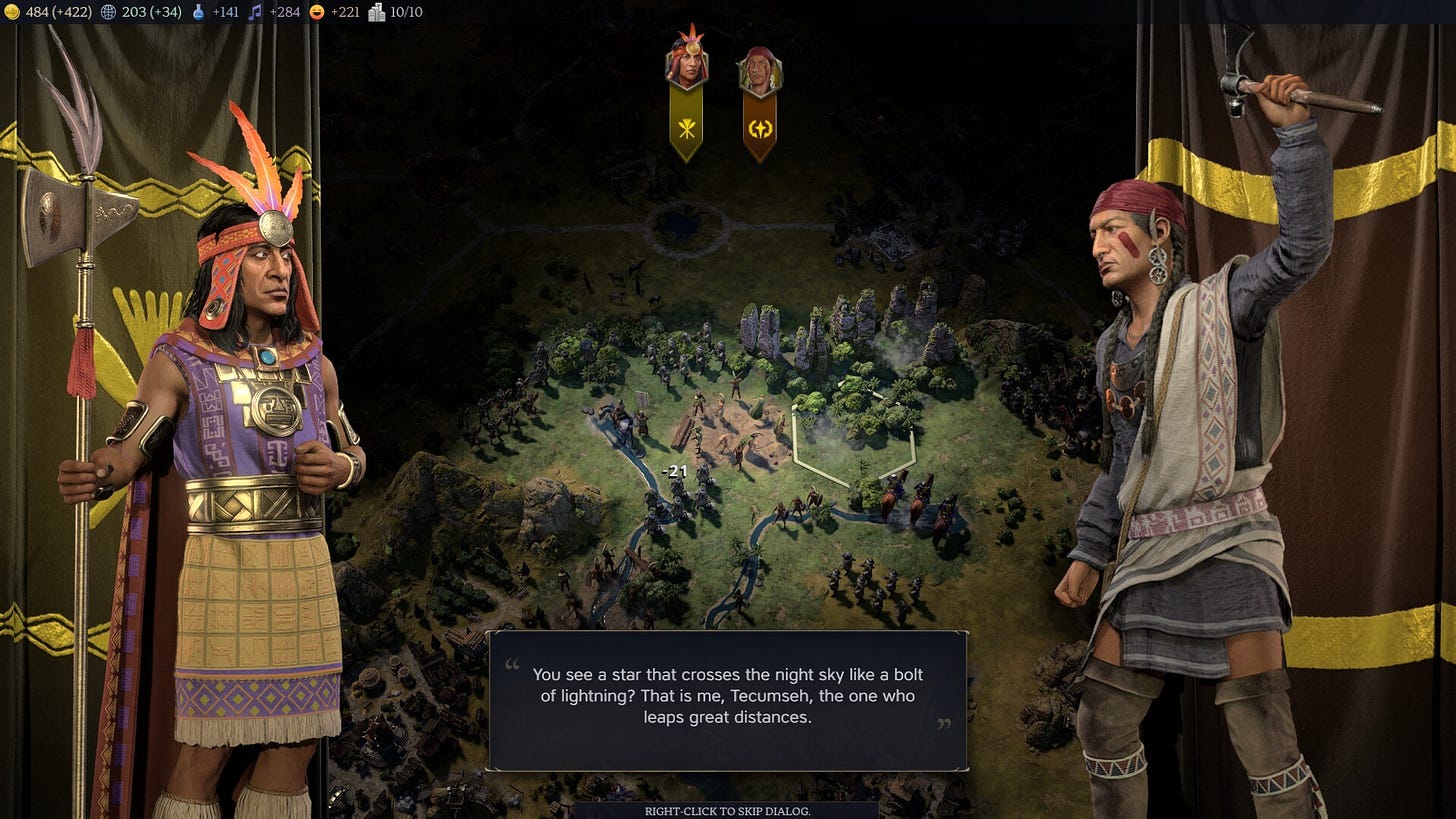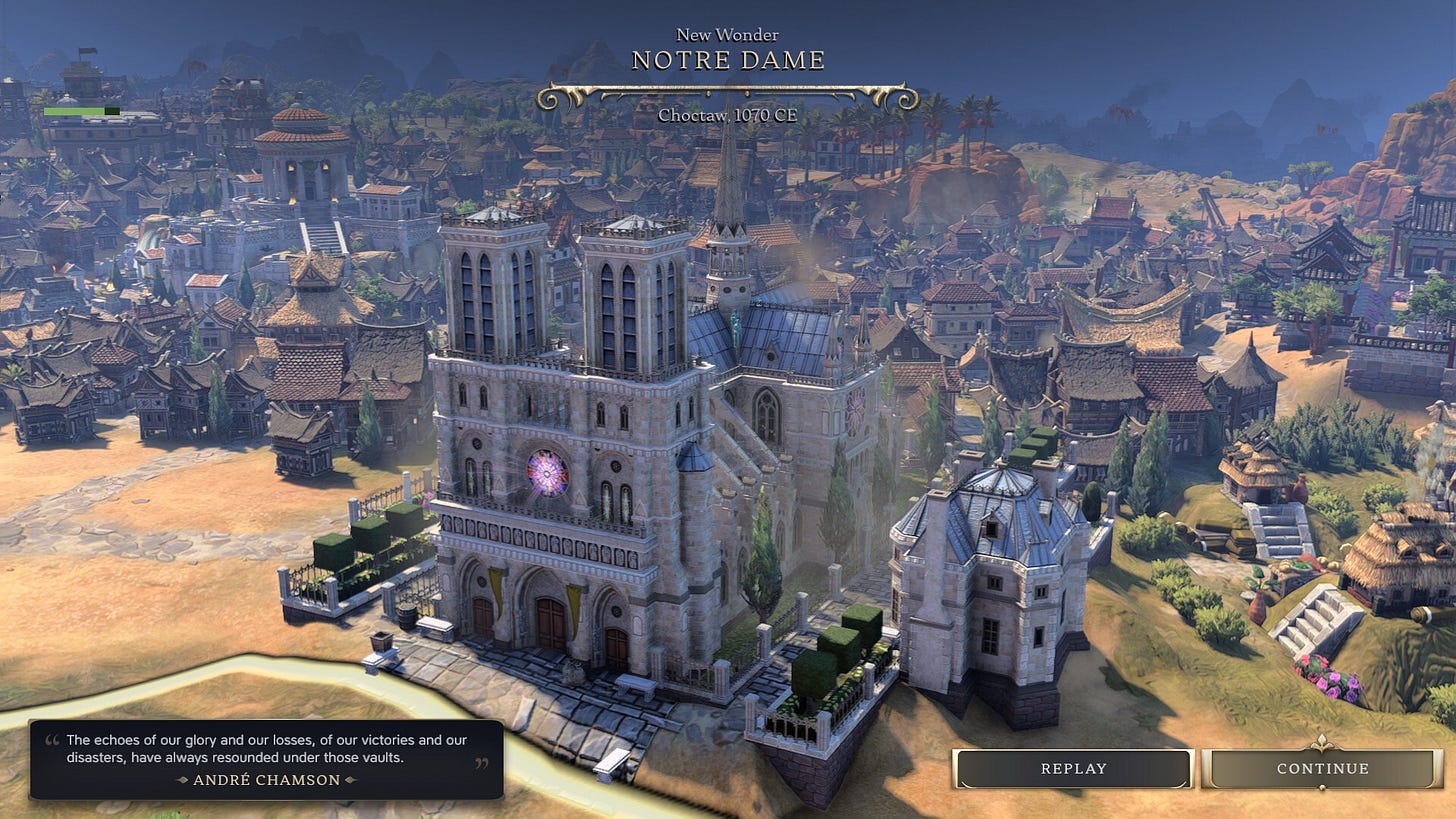Civilization 7's Revisionist History
Series designers talk about the game's revolutions and evolutions
Civilization 7 launched this week to a decidedly mixed reception. The most salient criticism: the game doesn’t display statistics that could best inform your choices. Even the warmest critics agree — this could be (and likely will be) much better.
Those who’ve followed the series since it erupted in 1991 know that’s how nearly every launch has gone. Civilization 6’s reputation climbed after years of expansions and bug fixes and I have little doubt that 7’s will too. For all of its faults, the game has strong bones. The three-age structure may not be perfect (I’m not keen on micromanaging the Exploration Age’s missionaries and treasure fleets, for one) — but it’s precisely the kind of sweeping innovation the series needs to justify a new edition.
I produced a segment with Civilization 7’s lead designer, executive producer, and narrative designer/historian on the revisions they made to the game’s longstanding formula:
Harriet Tubman plots my downfall.
I’ve built Egypt from a single city to a continent-straddling empire. I’ve blazed lucrative trade routes with my neighbors and even allied myself with nearby Rome. But try as I might, Harriet Tubman rejects my friendly overtures. I see her forces massing near my borders — her ships invade as trumpets herald the end of the Antiquity Age. I’ve been saved by the bell, as I launch the next chapter of an epic game of Civilization 7.
“You don't want to run into Harriet Tubman in a particularly foul mood,” says Dennis Shirk, executive producer of Civilization 7. The abolitionist is one of many new additions in this latest edition of “Civilization,” produced by the Maryland-based Firaxis Games.
“We aim to encourage players to also be interested in the history behind what we do,” says Firaxis historian and narrative designer Rue Taylor. But more than three decades since its inception, the franchise is taking new steps to model humanity’s grand story more accurately.
That overhauled philosophy begins with new leaders, global figures who may not have held political power in their own day, from Filipino writer José Rizal to renowned Moroccan explorer Ibn Battuta. But that’s just the first change players will encounter.
While you’ll lock in your leader for an entire game, your civilization will morph between Antiquity, Exploration and Modern ages. In one game, I picked Marquis de Lafayette as a leader of a Greek civilization. I morphed into the Shawnee when the Exploration age dawned before ending my playthrough as Modern America.
“This is a big change that we've made after having looked at the way Civilization games were structured in the past,” says lead designer Ed Beach. “The game in the past was this really, really long experience, maybe 10, 20 hours of play to get through it — and it just went on with sort of no climactic moment.”
“The Ages structure gives us sort of a better pacing, but what I love about it is it also represents world history better,” says Beach. “I love traveling to places like Britain and thinking about, ‘Hey, the Romans used to own this,’ and after the Romans were there, the Anglo-Saxons came through and then the Normans came through and then the English were finally established in England.”
That layered approach defines the arc of Civilization 7. By the Modern age, players can even win the entire game by unearthing artifacts from earlier eras. Ultimately, historian Rue Taylor hopes that this new structure opens minds to even broader connections.
“We've divided the game into ages, but history is a constant, flowing story,” says Taylor. “When we study history, we often study one civilization at a time in isolation – but the world is full of interactions.
“Once you step out,” mused Taylor. “You see that there is no kind of one through line, but rather all of these different branches that interweave with one another.”
Listen to full (audio rich!) story about Civilization 7 here.






